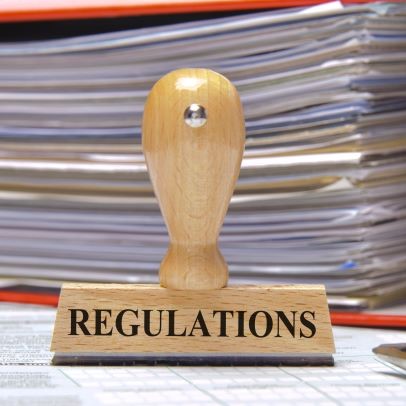Information on Cookies
To make the best use of our website, you'll need to make sure your web browser is set to accept cookies to ensure you receive the best experience.
For further information, please read our Cookies Policy.

Log In

Part 2 of these Regulations enable local authority designated officers to issue notices to people who are contravening or have contravened various statutory provisions in place to minimise exposure to Coronavirus.
Part 3 of these Regulations make various amendments to existing Regulations made under the Public Health (Control of Disease) Act 1984, and related savings provisions.
Regulation 2 lists the statutory provisions contravention of which may lead to the serving of a notice under these Regulations.
Regulation 3 enables a local authority designated officer to issue a Coronavirus Improvement Notice, requiring a person who is breaching, or has breached, one of those provisions to end that breach and ensure it will not be repeated. Such a notice is not to be issued in relation to essential infrastructure. The regulation lists what the notice must include and provides for review of the notice which may lead to withdrawal of the notice or the issue of a further notice under these Regulations.
Regulation 4 enables a local authority designated officer to issue a Coronavirus Immediate Restriction Notice to a person the officer believes is breaching, or has breached, one of the statutory provisions and there is a future risk of exposure to coronavirus. Such a notice is not to be issued in relation to essential infrastructure. The notice is to require either closure or part-closure of the premises and/or the breach to be stopped. Any requirement must be necessary and proportionate for the purpose of minimising the risk of exposure to Coronavirus. The notice has
effect for 48 hours. The regulation lists what the notice must include and provides for review of the notice which may lead to amendment or withdrawal of the notice or the issue of a further notice under these Regulations.
Regulation 5 enables a local authority designated officer to issue a Coronavirus Restriction Notice to a person the officer believes has not complied with a Coronavirus Improvement Notice and that non-compliance involves a risk of exposure to coronavirus. Such a notice is not to be issued in relation to essential infrastructure. The notice is to require either closure or part-closure of the premises and/or the breach to be stopped. Any requirement must be necessary and proportionate for the purpose of minimising the risk of exposure to Coronavirus. The notice has effect for 7 days. The regulation lists what the notice must include and provides for review of the notice which
may lead to amendment or withdrawal of the notice or the issue of a further notice under these
Regulations.
Regulation 6 provides that it is an offence, punishable on summary conviction by a fine, to contravene a notice under these Regulations without reasonable excuse. It provides that a company and officer of the company can be found guilty of an offence and provides that provisions of the Police and Criminal Evidence Act 1984 in relation to police constable powers to arrest apply in relation to offences under this regulation.
Regulation 7 provides that prosecutions of an offence under Part 2 may be brought by a local authority, the Crown Prosecution Service and any person designated by the Secretary of State.
Regulation 8 provides that a local authority designated officer may issue a fixed penalty notice to a person the officer reasonably believes has committed an offence under regulation 6. Payment of that fixed penalty discharges liability to conviction for the offence. It provides that proceedings for the offence cannot be brought until 28 days after the date of the notice. It lists the details that such a notice must include and how payment can be made.
Regulation 9 provides that an appeal against a Coronavirus Improvement Notice, Coronavirus Immediate Restriction Notice or a Coronavirus Restriction Notice issued under these Regulations, or a review of such a notice, can be made to a magistrates’ court within 28 days of the notice being issued or the review decisions being notified to the person to whom the notice was issued. It provides that the provisions of the Magistrates’ Court Act 1980 (c. 43) apply to that appeal.
Regulation 10 provides that a person designated by a local authority or the Secretary of State for the purposes of various provisions in other Regulations is to be treated as if they were so designated for the purposes of various provisions within these Regulations.
Regulation 11 introduces the Schedule.
Regulation 12 provides for the expiry of Part 2 six months after it comes into force but that such expiry does not affect the validity of anything done under that Part prior to that day.
